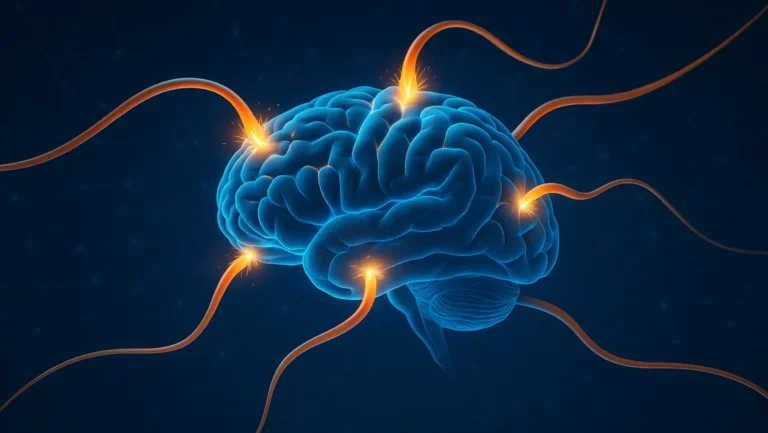Ayurveda medicine is one of the world’s oldest healthcare systems, yet many still ask: what is Ayurveda and can it truly help in modern life? Let’s explore the Ayurveda meaning, the science of doshas, and what research says about it.
What is Ayurveda?
The Ayurveda definition comes from Sanskrit: Ayur means “life,” and Veda means “knowledge.” To define Ayurvedic, it is “knowledge of life.” Unlike modern hospitals that focus on disease, Ayurveda studies how to live in a balanced, healthy way.
It is more than a treatment plan; it is an ancient healing system from India that teaches people how to prevent disease, improve energy, and live in harmony with nature.
Unlike other alternative medicine, Ayurveda is not only about herbs. It combines:
- Food (the Ayurvedic diet)
- Daily routine
- Exercise (like yoga)
- Breathing and meditation
- Natural healing remedies (oils, massages, herbs)
The main goal is mind–body balance, which Ayurveda sees as the foundation of true health.
Three Doshas: The Core of Ayurveda

In Ayurveda, every human is unique because of the three doshas (vata, pitta, kapha). These doshas represent forces that control your body and mind.
Vata Dosha
- Represents air and space.
- Manages breathing, heartbeat, and movement.
- Balanced Vata denotes creativity, energy, enthusiasm.
- Imbalanced Vata denotes anxiety, dry skin, constipation, restlessness.
Pitta Dosha
- Represents fire and water.
- Controls digestion, hormones, metabolism, body temperature.
- Balanced Pitta indicates a sharp mind, strong appetite, clear skin.
- Imbalanced Pitta denotes anger, heartburn, ulcers, rashes, overheating.
Kapha Dosha
- Represents earth and water.
- Provides strength, immunity, calmness, and stability.
- Balanced Kapha means patience, strength, endurance.
- Imbalanced Kapha means weight gain, sluggishness, allergies, depression.
Your unique mix of doshas (called prakriti) decides your body type, digestion, and even personality. Unlike “one-pill-for-all” systems, Ayurveda adapts treatment to your dosha.
Does Ayurveda Work?
The most common question people ask is: does Ayurveda work or is it just tradition passed down without proof? The truth is somewhere in between. Ayurveda is not “magic,” but it does have evidence-based benefits, centuries of observation, and unique principles that modern science is only beginning to study.
1. Evidence From Research
Some Ayurvedic practices have been studied in detail:
- Herbal medicine:
- Ashwagandha has been shown in clinical studies to reduce stress, lower cortisol, and improve sleep.
- Turmeric (curcumin) demonstrates anti-inflammatory effects, helpful for arthritis and metabolic conditions.
- Triphala, a three-fruit formula, supports digestion, bowel regulation, and may improve gut microbiome diversity.
- Detox Therapies: Panchakarma (Ayurvedic cleansing program) has been linked to reduced toxin levels, improved cholesterol, and better immune response in small studies.
- Mind–Body Techniques: Meditation, yoga, and pranayama, which are part of Ayurveda, are supported by strong evidence for stress reduction, lowering blood pressure, and improving mental health.
- Dietary Practices: The Ayurvedic diet emphasizes seasonal, fresh, and easy-to-digest food. This aligns with modern nutrition science that supports whole foods, gut health, and avoidance of processed items.
2. Where Ayurveda Excels
Ayurveda shines in areas where modern medicine often struggles:
- Chronic Lifestyle Disorders: Conditions like obesity, type 2 diabetes, irritable bowel syndrome, and stress-related problems respond well to diet, herbs, and lifestyle changes guided by Ayurveda.
- Preventive Care: Instead of waiting for illness, Ayurveda emphasizes daily routine (dinacharya), seasonal adjustments (ritucharya), and personalized diet — which reduces long-term disease risk.
- Holistic Healing: Ayurveda is a holistic health system, meaning it treats sleep, emotions, environment, and food as connected. Modern medicine often separates these areas.
3. Where Ayurveda Has Limits
It’s important to be realistic. Ayurveda is not a replacement for life-saving emergency medicine.
- Acute Illnesses: Heart attacks, strokes, fractures, and infections need urgent modern treatment. Ayurveda cannot replace surgery, antibiotics, or intensive care.
- Quality Concerns: Some unregulated herbal supplements have been found to contain heavy metals or adulterated ingredients. Trusted sources and professional guidance are critical.
- Scientific Gaps: While many herbs are studied, not every Ayurvedic practice has large-scale, peer-reviewed evidence. Research is growing, but still incomplete.
4. The Integrative Approach
Today, many hospitals and wellness centers promote integrative health; combining the strengths of modern medicine with Ayurveda. For example:
- Cancer patients use Ayurvedic herbs to reduce chemotherapy side effects.
- People with arthritis combine conventional drugs with turmeric or yoga for better results.
- Stress-management programs often integrate meditation and Ayurvedic oils.
5. Why People Continue to Use Ayurveda
Even with modern hospitals everywhere, Ayurveda remains relevant because it offers something people crave:
- A natural healing remedy approach that avoids heavy dependence on synthetic drugs.
- A system that respects individuality (dosha-based treatment instead of “one-size-fits-all”).
- A philosophy that connects lifestyle, food, and mind, not just physical symptoms.
- Long-term prevention rather than short-term fixes.
Is Ayurveda Right for You?
Ayurveda might be right if you want:
- Long-term health, not just quick fixes.
- A holistic health system that values prevention.
- To reduce stress, improve digestion, or manage chronic lifestyle diseases.
- Guidance on sleep, food, and emotional health.
But Ayurveda is not suitable for emergencies like strokes, severe infections, or trauma. It shines in chronic care, stress, digestion, skin problems, and preventive health.
The Bottom Line
The Ayurveda meaning is simple yet deep: “knowledge of life.” It’s more than herbs, it’s a traditional Indian medicine system that connects food, lifestyle, and nature.
Does Ayurveda work? Yes, but wisely. Use it for prevention, chronic health, and natural healing remedies. But for critical care, modern hospitals are essential.
The strength of Ayurveda is its personal touch. Instead of treating everyone the same, it looks at your dosha, habits, and environment to create balance. That is why this ancient healing system is still practiced worldwide.
FAQs
What is Ayurveda in simple words?
Ayurveda is a 3,000-year-old ancient healing system from India that teaches how to balance body, mind, diet, and lifestyle using natural remedies and personalized health practices.
What are the 4 basics of Ayurveda?
The four basics of Ayurveda are body, mind, soul, and senses. These four pillars must stay in balance for health, happiness, and prevention of disease through natural methods.
What is the main aim of Ayurveda?
The main aim of Ayurveda medicine is not just to treat disease but to prevent it by maintaining balance of doshas, diet, sleep, exercise, and lifestyle choices for complete wellness.
What is the golden rule of Ayurveda?
The golden rule is balance. When your doshas, diet, sleep, activity, and emotions are aligned, your body can prevent illness and sustain energy, clarity, and long-lasting wellness naturally.
What is Ayurvedic food?
Ayurvedic diet means eating foods suited to your dosha. It focuses on fresh, seasonal, lightly spiced, and easy-to-digest meals that support digestion, energy, and overall health.
What is the most important thing in Ayurveda?
The most important thing in Ayurveda is balance of doshas. Without balanced doshas, body and mind suffer. With balance, digestion, immunity, and emotional strength naturally improve.
What are the disadvantages of Ayurveda?
Disadvantages include poor-quality herbs with toxins, misuse of remedies without guidance, and slow results for severe illnesses. Always consult trained practitioners and combine with modern treatment when necessary.
















Leave a Comment